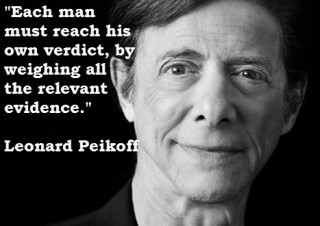
Who destroyed Ayn Rand’s reputation for intellectual integrity? Cui bono? Who had the most to gain?
I have further thoughts on Ayn Rand’s late-life Social Security parasitism if anyone cares to revisit that topic.
I was referring back to a post I wrote in June of 2014: How to explain Ayn Rand’s late-life Social Security parasitism? “Old people make mistakes.” That might seem like too much inside baseball to you, but it’s interesting because Ayn Rand’s terminal destination – government-registered looter – is the best weapon Marxists have to deploy against her lifelong anti-Marxism.
As I discussed back then, the official-Objectivist rationale for this undoubted predation is ludicrous, an obvious ass-covering exercise: Ayn Rand was really, really, special-snowflake entitled to steal other people’s money because she had been opposed all along to having her own money stolen. This of course is Tu Quoque and Two Wrongs Make A Right, the lies one can predictably expect to hear every time you catch a hand in the cookie jar.
I find that explanation hugely implausible. Had Rand actually believed she was proudly championing the restitution of property rightfully her own, she would have proceeded differently: By formally demanding a specific sum, for example, or by suing for the restoration of her property rights – or by seizing what she said was hers like some fictional towheaded pirate. Moreover, it seems reasonable that she would have mounted her campaign while she was still young and vital, not when she was already circling the drain.
But that argument of timing – by way of her estate planners, Rand applied for Social Security and Medicare as she neared her death – implies that Rand also did not think she was entitled to those funds by the ordinary illogic of the elderly, either. If she was seeking restitution, she would have done so when we was younger, and if she was simply a typical rent-seeking septuagenarian, she would have applied for ‘benefits’ when she became eligible – years earlier.
All of this argues to me that Rand did not herself knowingly become a looter. I speculated before that the explanation for this contradiction is that “old people make mistakes” – but I don’t believe that, either. Contemporary accounts portray Ayn Rand at this stage of her life as being essentially non compos mentis, and this is supported by the fact pattern: It was her estate planning attorneys, not Rand herself, who made the applications.
So my question would be: Why did they do that?
Were they operating on Rand’s instructions, with her carefully husbanding her resources between morphine naps?
Did they take it upon themselves unilaterally to take the the action that best undermined her reputation?
Or were they pressured by a third party?
When someone insists “It’s not about the money!” – it’s about the money. This episode definitely is. Late-life medical expenses are huge, and Ayn Rand, despite her literary success, was a piss-poor investor. Accordingly, her small fortune was rapidly evaporating as the costs to keep her alive mounted.
It is throughly plausible that the estate planners rushed in to plug the gap, possibly not knowing – or not caring – how their client might react to that news.
But it seems more plausible to me that they were pushed into taking that outrageous betrayal of Rand’s anti-looter philosophy from the person who stood to lose the most from upholding it:
Leonard Peikoff.
Pope Sneakoff is Ayn Rand’s Intellectual Error, in case he hasn’t told you yet. He inherited every atom of brains his boss-lady could bequeath to him – after she wrote her treacherous ex-boyfriend out of her will. And don’t ever say the man didn’t pay his dues: I’ve heard many first-hand accounts of the abusive public vituperation Mrs. Logic visited upon poor little Lenny in avid pursuit of non-contradictory joy. If anyone could feel entitled to a payday from Rand’s passing, surely Peikoff is that punter.
Except that the payday came from innocent taxpayers, not Ayn Rand. If I’m right about this, Peikoff would have instructed the estate planners to take actions that have destroyed Rand’s reputation, all to make sure there would be at least some money for him to inherit, once she died.
That’s an ugly supposition on my part, but these are very ugly people. The one time in my life I saw Pope Sneakoff in person, he was sweating bullets, lying by rote about all the lies Rand and he had told over the years about that treacherous ex-boyfriend. I don’t think the man has ever covered himself in glory, but he smeared himself in shit that day, sliming his own family and lifelong friends to defend Rand’s reputed probity, in obvious contradiction of the undisputed facts.
Surely a man who has wasted his whole life like Lord Burghley, covering for his Queen’s indiscretions, deserves a little cheese with his bread – even if he had to burn down the whole damned farm to get it.
Truly this matters nothing, except as a footnote to a footnote. Big-O Objectivists eat their young, and Atlas Shrugged has been replaced by the Harry Potter series as the Cautious-Incandescent bat-signal, the books bad-at-math geeky teenagers schlep around to show the other kids how smart they are.
But when the question is asked, “Who killed Ayn Rand’s reputation for integrity?” – my answer is the man who had the most to gain from that awful crime:
Pope Sneakoff, in the hospital, with a pen.















